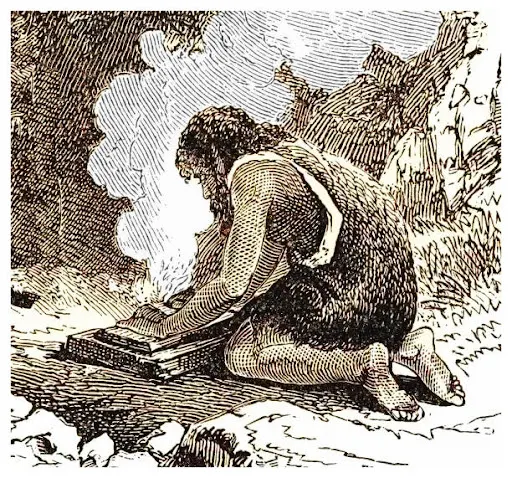The-Evolution-of-Human-Consciousness:-From-Survival-to-Self-Actualization
The Evolution of Human Consciousness: From Survival to Self-Actualization
Human consciousness is a marvel of evolution, an intricate tapestry woven through centuries of development. From the primal instincts that fueled our ancestors' survival to the complex, nuanced pursuit of self-actualization in the modern world, our journey as a species reflects a profound transformation in our understanding of what it means to live a purposeful and fulfilled life.
The Early Stages: Survival and the Foundation of Consciousness
In the earliest stages of human evolution, consciousness was primarily focused on survival. Early humans faced a harsh, unforgiving environment where the primary concerns were securing food, finding shelter, and avoiding predators. The mind, in its nascent form, was a tool for navigating these immediate physical challenges. Survival instincts were paramount, and consciousness was primarily reactive, driven by the need to protect oneself and one’s tribe.
This phase of human consciousness is characterized by what psychologists refer to as the "lower levels" of Maslow's hierarchy of needs. Basic physiological needs—such as food, water, and warmth—were the central focus. Following closely were safety needs, including physical security and protection from the elements. The evolution of these instincts laid the foundation for more complex forms of thought and awareness.
While these early stages were dominated by a survival mindset, they also set the stage for the development of more sophisticated forms of consciousness. As humans began to secure their basic needs with greater efficiency, the mind was freed to explore higher realms of thought and experience.
The Growth of Social Consciousness: Belonging and Esteem
As human societies grew and evolved, the focus of consciousness expanded beyond mere survival to include social structures and relationships. With the establishment of communities, humans began to seek belonging, acceptance, and recognition within their groups. This shift in consciousness was driven by the realization that cooperation and social bonds were essential for survival and well-being.
During this phase, the need for love, belonging, and esteem became prominent. Humans sought not only to survive but to thrive within their social environments. The development of language, culture, and traditions further expanded human consciousness, allowing individuals to express their thoughts, emotions, and desires more clearly and effectively.
Belonging to a group provided security, but it also brought about the need for validation and esteem. Individuals sought recognition for their contributions, leading to the development of roles, hierarchies, and systems of status within societies. This era of human consciousness is marked by a deepening understanding of the self in relation to others, as well as the growing importance of personal and collective identity.
The Emergence of Individual Consciousness: The Quest for Meaning
With the establishment of more complex societies, human consciousness began to explore the realms of individual identity and purpose. As individuals secured their basic needs and established their place within their communities, they began to seek deeper meaning in their lives. This shift marked the emergence of what we now recognize as individual consciousness—the awareness of oneself as a unique entity with personal goals, desires, and aspirations.
This stage corresponds to the higher levels of Maslow’s hierarchy, particularly the need for self-actualization. Individuals began to ask profound questions about the nature of existence, the meaning of life, and their place in the universe. This quest for meaning led to the development of philosophy, religion, and art—avenues through which humans could explore and express their deepest thoughts and emotions.
In this phase, consciousness became more introspective, as individuals sought to understand themselves on a deeper level. The pursuit of knowledge, wisdom, and personal growth became central to the human experience. This era is marked by the rise of great thinkers, spiritual leaders, and artists who sought to explore the mysteries of life and the nature of the human soul.
The Age of Self-Actualization: Realizing Potential and Purpose
In the modern era, the evolution of human consciousness has reached new heights with the widespread recognition of the importance of self-actualization—the realization of one’s fullest potential and purpose in life. Unlike previous stages, where survival, social belonging, and individual identity were the primary concerns, self-actualization is about transcending these needs to achieve a state of fulfillment and purpose.
Self-actualization involves the pursuit of personal growth, creativity, and self-expression. It is the stage where individuals seek to align their lives with their deepest values, passions, and talents. This stage is characterized by a strong sense of purpose, as individuals strive to make meaningful contributions to the world around them.
To live a purposeful and fulfilled life in the age of self-actualization, individuals must engage in a continuous process of self-reflection and growth. This involves exploring one’s inner world, identifying core values and beliefs, and pursuing activities that align with these principles. It requires a commitment to lifelong learning, the cultivation of self-awareness, and the willingness to embrace change and uncertainty.
Moreover, self-actualization is not an endpoint but an ongoing journey. It is a dynamic process that evolves as individuals grow and change over time. As we reach new levels of understanding and achievement, our goals and aspirations may shift, prompting us to seek new avenues for growth and fulfillment.
The Role of Collective Consciousness: Contributing to a Greater Good
While self-actualization focuses on individual growth and fulfillment, it is also intrinsically linked to the well-being of the broader community. As individuals achieve self-actualization, they often feel a greater sense of responsibility to contribute to the collective consciousness—the shared beliefs, values, and goals of society.
This collective consciousness is essential for the continued evolution of humanity. By contributing to the greater good, individuals not only find purpose in their lives but also help to elevate the consciousness of others. This can be seen in the work of leaders, innovators, and activists who dedicate their lives to advancing social justice, environmental sustainability, and global peace.
Living a purposeful and fulfilled life, therefore, involves both personal and collective dimensions. It requires individuals to cultivate their own potential while also contributing to the growth and well-being of others. In this way, the evolution of human consciousness is a shared journey, where each person’s progress adds to the collective advancement of humanity.
Conclusion: The Path Forward
The evolution of human consciousness from survival to self-actualization is a testament to the incredible potential of the human mind. As we continue to grow and evolve, the challenge for each of us is to live with purpose and fulfillment, not only for our own benefit but for the betterment of society as a whole.
By embracing the principles of self-actualization and contributing to the collective consciousness, we can create a world where every individual has the opportunity to realize their fullest potential. In doing so, we honor the journey of our ancestors and pave the way for future generations to live lives of purpose, meaning, and fulfillment







Comments